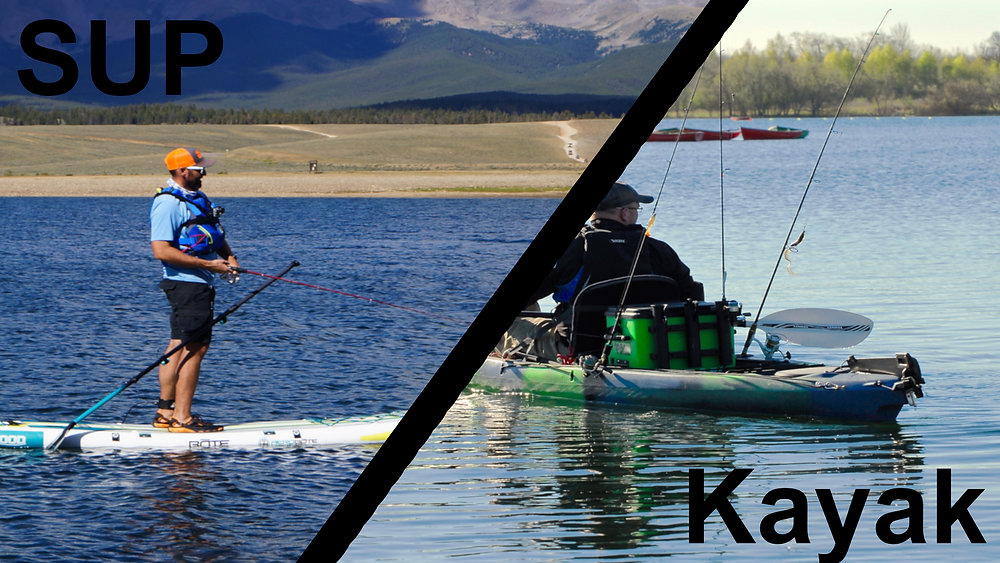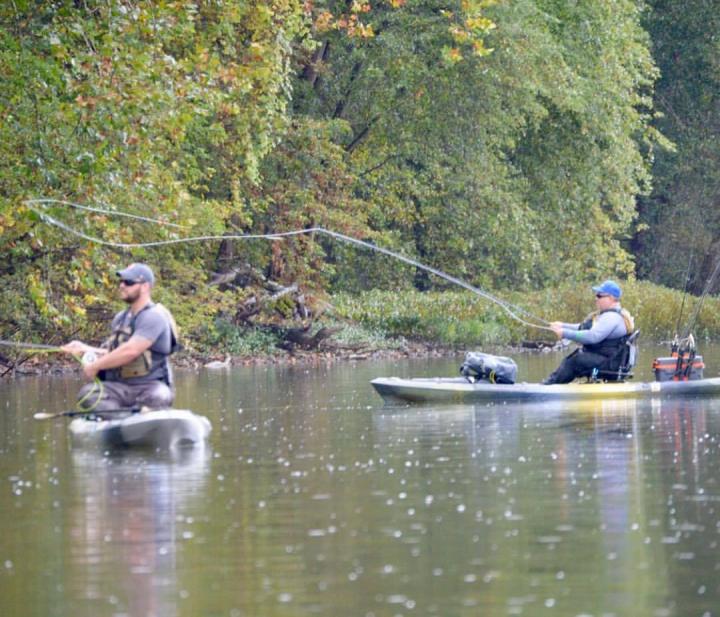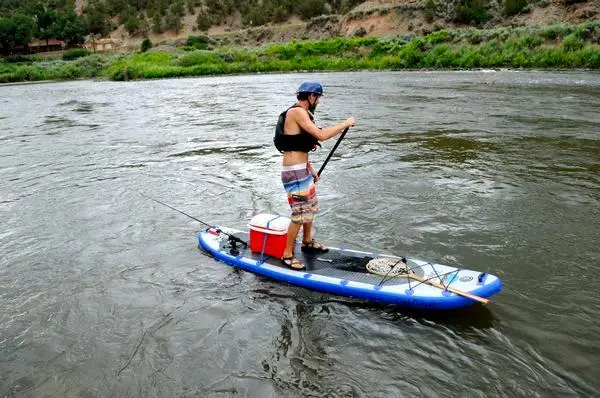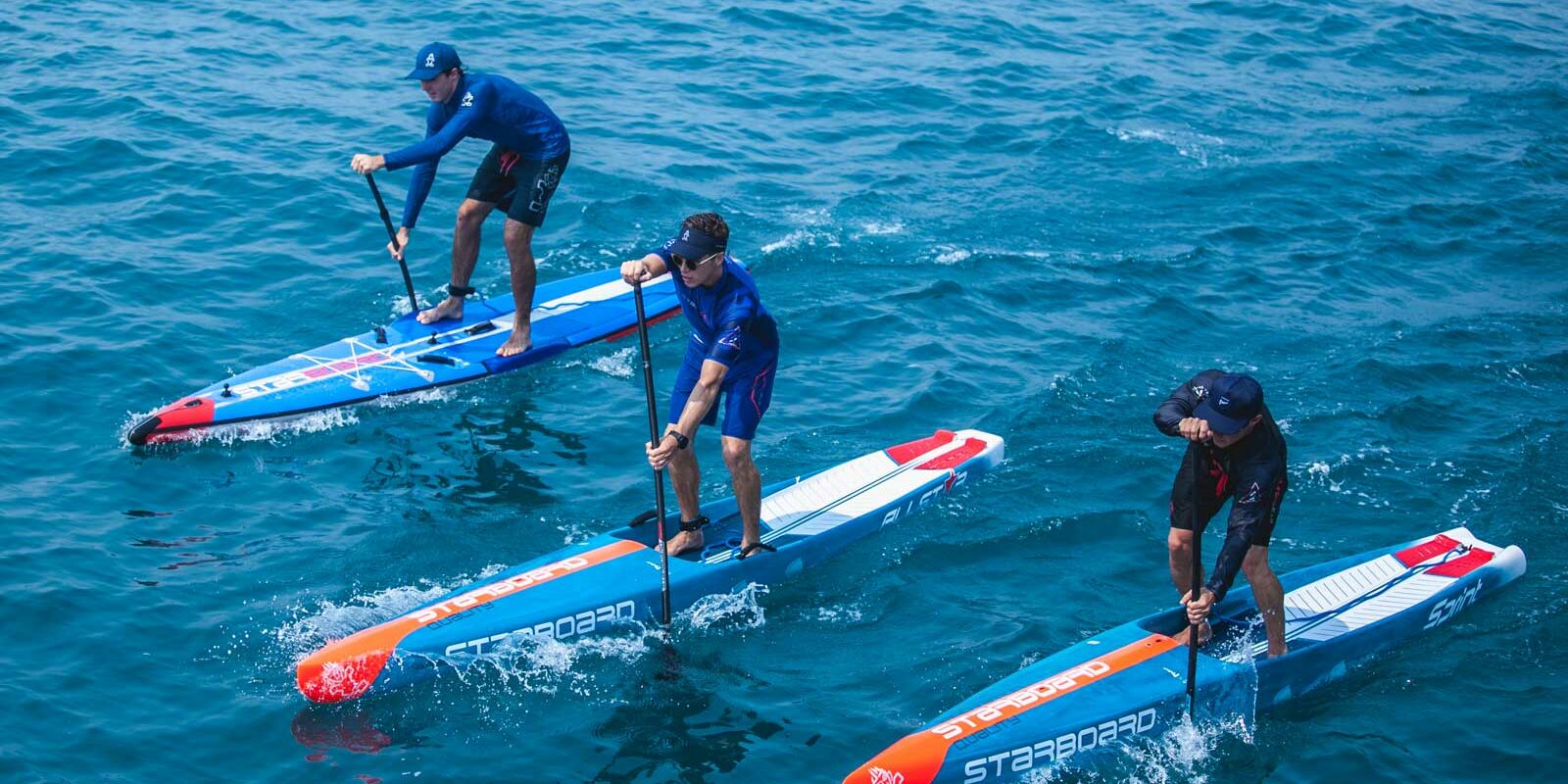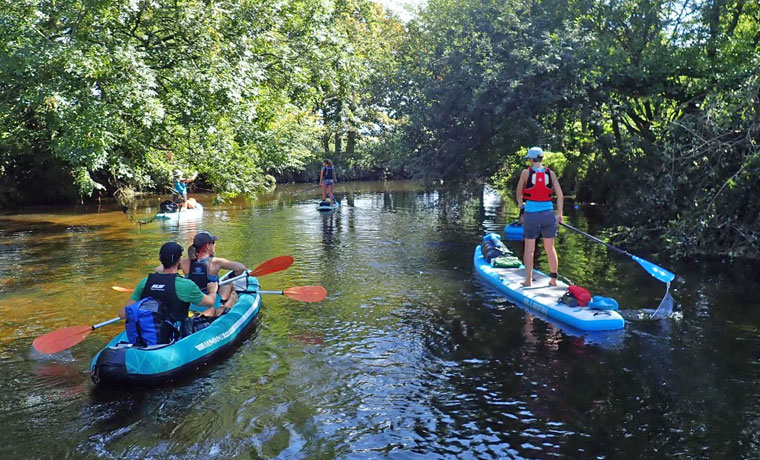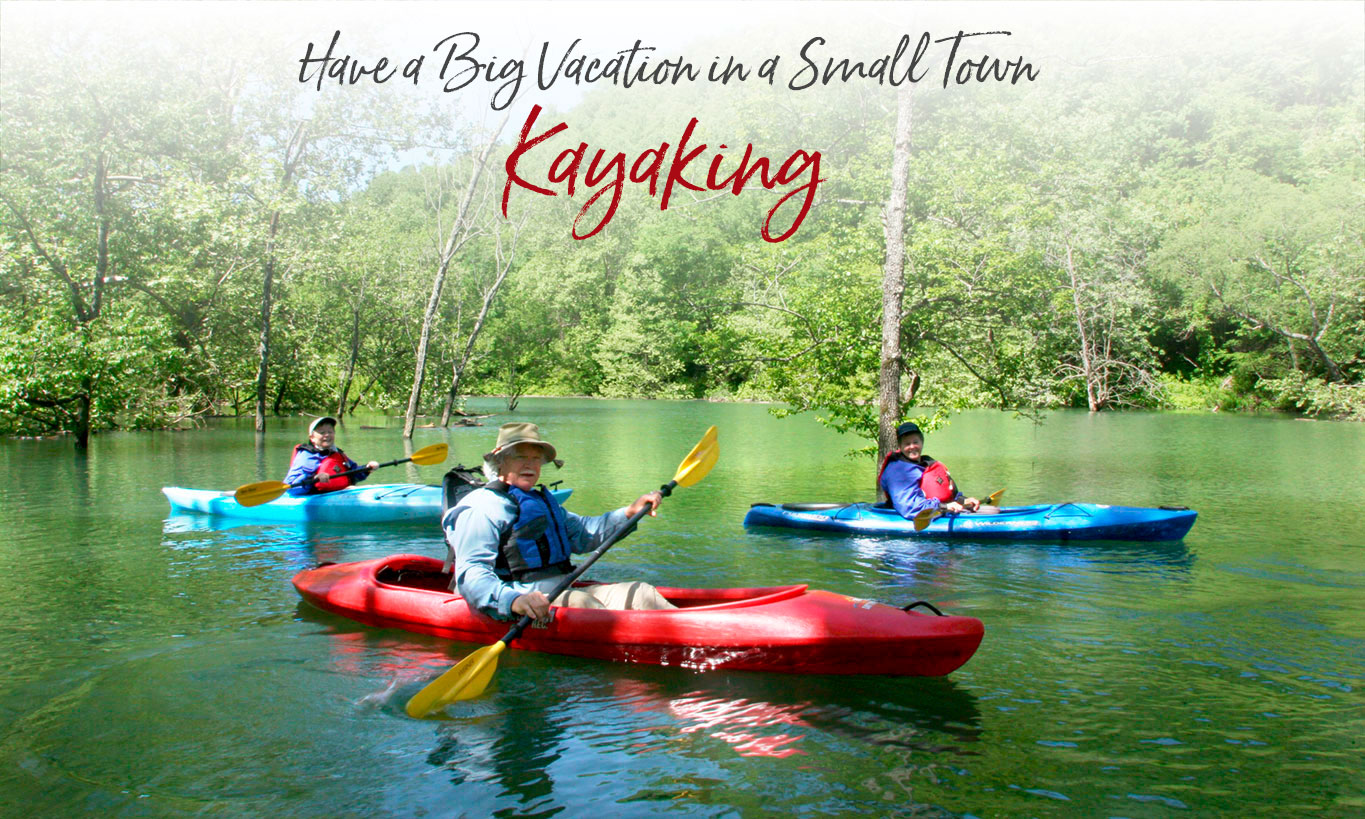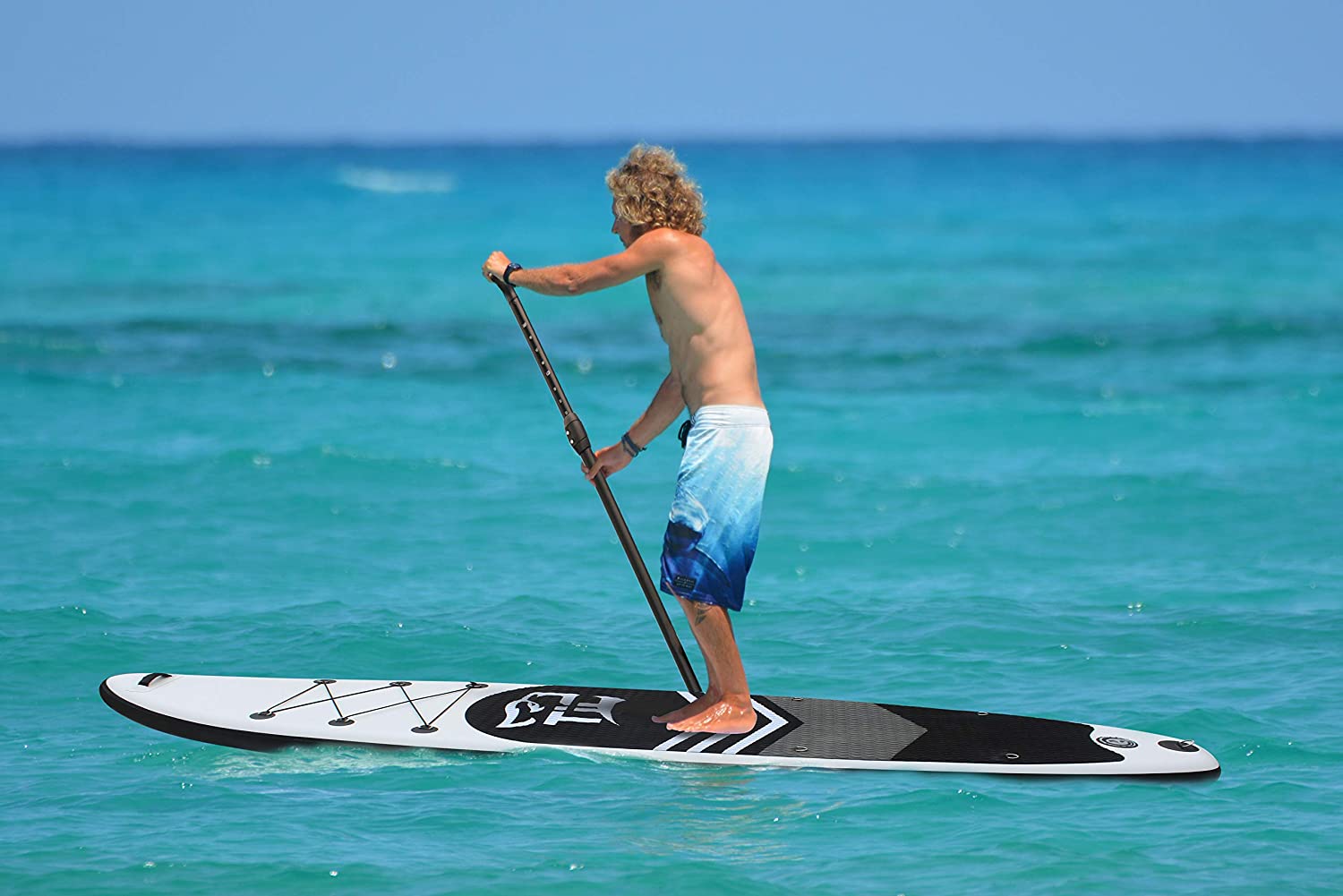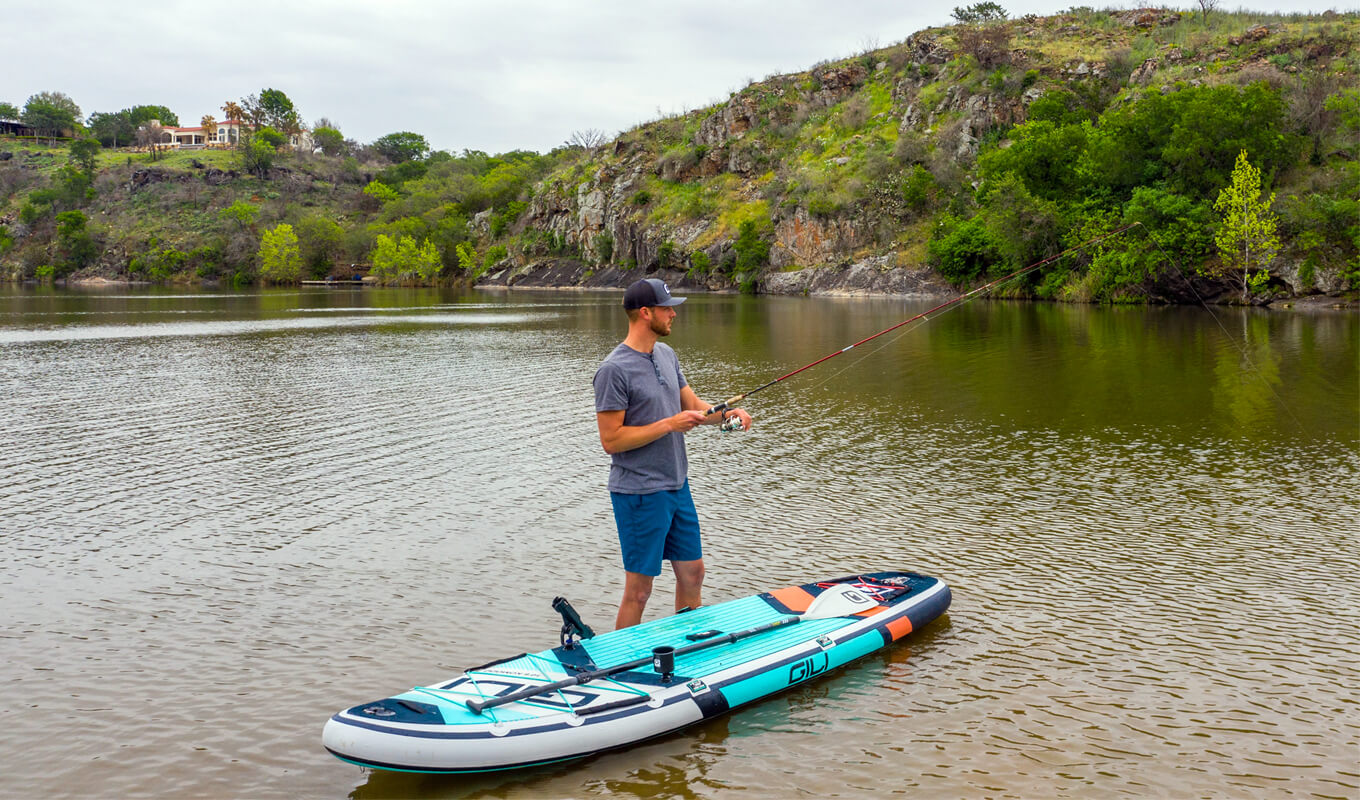
What's Better For Fishing; Kayaks Or SUPs? 2026
Kayak fishing is slowly but surely taking over the world of angling. People were tired of buying large, heavy, expensive, cumbersome boats to stow and transport. As a result, consumers moved away from those heavy aluminum boats and invested in lighter and cheaper kayaks, which have only grown in popularity. However, a new challenger has entered the stand-up paddleboard (SUP) market.
As saltwater fishers and anglers out west began transforming them into fishing vessels, they grew in popularity. They have spread across the country in recent years, and you can now find them primarily used by anglers on the east coast. SUPs are now manufactured specifically for fishing, posing a severe threat to kayaks, the king of small vessel fishing.
Fishing With A Kayak Or SUP Has Many Benefits
Let's break down what they have in common before going too far.
Lightweight
Due to their plastic construction, both can have a wide range of weights depending on their size. Nonetheless, these are generally easy to transport for a single person. As a result of their lightweight capabilities, they are also straightforward to store.
Fishing In Skinny Water
Your bass boat won't be able to cover a small river or creek well, and you can easily float through a foot or two of water using a kayak or SUP. As a result, you will not be constrained by your location and can reach fish that previous anglers could not.
Maintenance
There's an old joke that you've probably heard before. It tells how the happiest days in a boater's life are the day he buys his boat and the day he sells it, which means if you've never owned one before, it can be a pain to maintain. Kayaks or SUPs shine in this scenario, and you don't have to do much maintenance apart from occasional rinsing to keep it out of the elements. Let's dig a little deeper to determine which will work best for you based on what they both have in common.
Are You A Fly Fisher Or A Spincaster?
Whether casting a Texas-rigged worm to a largemouth or chunking a streamer to a brown trout, you must know the vessel best for your fishing type.
Kayak Fly Fishing
It can be challenging to get a good back cast from a kayak, and you are so close to the water forces you to focus and make sure your fly doesn't slap behind you. Standing up might solve this problem, but remember that you must move from your seated position and maintain your balance while standing, resulting in you or a piece of gear falling into the water.
Kayaking While Spincasting
Casting your spin or bait caster is best if you want to sit down this close to the water. Due to your low position, you can easily throw underneath docks and overhanging tree limbs since your back released won't go anywhere.
SUP Fly Fishing
Fly fishing and SUPs go together like peanut butter and jelly. Since you're standing, you have ample room to backcast because of the extra stability. If you use an elevated seat or a cooler that straps down, you don't have to waste effort standing up to throw to rising fish.
Using A SUP For Spincasting
There is no reason you should not be able to cast your spinning set up like you can with a kayak. You can sit, kneel, or stand. Heck, if you want, you can even lie down!
Generally
You can easily cast your fly rod and spinning rod with the SUP. Thus, a SUP is your best bet if you want something that will allow you to release quickly. Still, don't ignore kayaks entirely. It can be challenging to cast a fly rod, but it is possible.
The Storage Of Gear Is An Important Consideration
A subculture of the fishing world that has to be one of the largest has to be gear heads. Gear heads are people who want the newest and best of everything. To catch fish, you need the latest lures, tackle boxes, scents, rods, reels, lines, and everything else under the sun, so how much gear you can carry should be essential.
Storage Options For Kayaks
You'll have many storage options if you don't purchase a kayak explicitly designed for whitewater rafting. You can usually store a tackle box or a small cooler in two areas with elastic straps at sit-ins. The paddler also has a flat spot in front of them to store other items and the areas in front and behind. With the kayak's lip, you won't worry about your things falling off.
Storage Options For SUP
There are straps in the front and back of most SUPs that can hold a cooler or gearbox that you can use for a seat.
You can put a few different things there, from a tackle box to food and other smaller items. With rod holders attached to your cooler, you can bring a few different setups, lures, and flies. Now, aside, this is the perfect vessel for the minimalist fisherman. The ship can hold everything you need, but not much more.
Generally
Kayaks are the best for storing gear, and they can hold just about anything you want, and SUPs are great if you paddle out with only the essentials.
Paddleboards And Kayaks With Motors
Many people are unaware you can strap a motor to these boats designed to be paddled.
A Kayak Trolling Motor Makes Kayak Fishing Easy
Using a trolling motor on a kayak is not uncommon, and Trolling along riverbanks or navigating large lakes has been done using them. Anglers can quickly get into position with these, and if you're worried about too much rattling and scaring fish, you can turn the motor off and paddle into your spot. As a trolling engine, it could only be used to get there.
Additionally, you can use this when fishing or holding your position during a windy day. Instead of casting and repositioning, you can stay in the same area with the trolling motor. Equipping kayaks with outboard motors is possible, but I do not recommend this option. An item like that is too heavy to carry in a plastic kayak, and do so at your own risk.
Motorized Paddle Boards Are The New Frontier Of Paddle Boards
The company BOTE has recently released a SUP that uses an outboard motor as its primary mode of transport. At the ICAST trade show, the BOTE Rover was named Best of Show. A SUP with a 6hp motor can get you wherever you go. During the summertime, cruise from the boat ramp to the shallows shut off the motor, and stealthily paddle your way back to the bedding bass. Perhaps you can even slink your way into the flats and cast flies to reds - what could be better?
In this case, you do not have to get the Rover, but you must purchase a SUP compatible with an outboard motor. A paddleboard will go the same way as a kayak if you rig up a system to hold a gasoline-powered engine. A trolling motor can easily be mounted and strapped to the mount if you do not want to spend the money on an outboard. Take care where you place the battery, and put it in a stripped-down gearbox.
Generally
You can use either of these options if you're looking to troll around a lake. For those who want to cover a lot of ground quickly, the BOTE Rover is a good option. These are a bit pricey, but if you love fishing from a SUP and need to cover large bodies of water, these will be perfect.
Kayaks And SUPs For Fishing
Accessories For Kayaks
As kayak fishing has become popular, many companies have developed various add-ons for anglers. These include clip-on rod holders, sonar, power poles, and live wells. You can now find the most comforts on a bass boat in a kayak, albeit on a smaller scale.
Accessories For SUPs
Things we like:
- FULLY WATERPROOF: The inside of this paddleboard deck bag is waterproof to provide protection for all of your essentials.
- FLOATS: No need to worry about dropping this SUP deck bag in the water, as it floats.
- CLIP AND ROPE SYSTEM: Includes 4 clips, rope and rope tightening system for attaching do your board's D Rings.
- FREE WATERPROOF PHONE POUCH: Keep your essentials like your keys and phone safe while on your paddleboard.
- LIFETIME WARRANTY: If you make a good quality product, you should back it up. This is why SUP-Now offers a lifetime guarantee on everything we make. We support you for the life of your product from our headquarters in Granbury, Texas.
Things we don't like:
- Limited storage capacity: The deck bag may not have enough space to hold larger items.
- May not be suitable for heavy-duty use: The bag may not withstand rough handling or extreme conditions.
- Limited color options: The product may not be available in a variety of colors to suit individual preferences.
- May require additional attachments: Some users may find the need to purchase additional attachments or accessories to fully utilize the bag's features.
SUP fishing is a relatively new phenomenon, so few accessories are available. If you want most items, you'll need to rig them yourself. SUP companies are now making boards that attach to casting bars, dramatically increasing the gear you can bring. Additionally, these casting bars double as handles for extra stability. Straps, rod holders, and cup holders can also be attached to them.
It is hard to find these SUPs, and only Bote makes them compatible with these bars. Nevertheless, more and more companies are slowly starting to get in on the SUP fishing action with their specialized fishing paddle boards.
Don't worry about seating if you're concerned. Many boards now have straps that allow you to strap down your cooler as you sit on it. Alternatively, you can install stadium-style seats to make them more comfortable. Cabela's and Bass Pro Shop now sell seats you can attach to your cooler to go even further. Doing so allows you to have a comfortable sitting area without sacrificing a more relaxed space.
Related Fishing Paddle Boards
Generally
Currently, kayaks have more angling accessories than SUPs, and their design will probably always give them an edge. Although SUPs aren't far behind as companies like Bote continue to innovate.
SUPs VS Fishing Kayaks: The Bottom Line
SUPs and kayaks can both serve to fish effectively. As they are so effective in shallow water, you can get back into spots that other anglers have never been to and target fish that have never seen a fly or lure before.
Ultimately, it comes down to personal preference. With a kayak, you can store all of your gear and accessories. If you are a minimalist fisherman who prefers larger bodies of water and requires an outboard to cover them, then the BOTE Rover is the vessel for you. If unsure, write down what you are looking for and re-read the article to determine if a kayak or a SUP is right for you.

